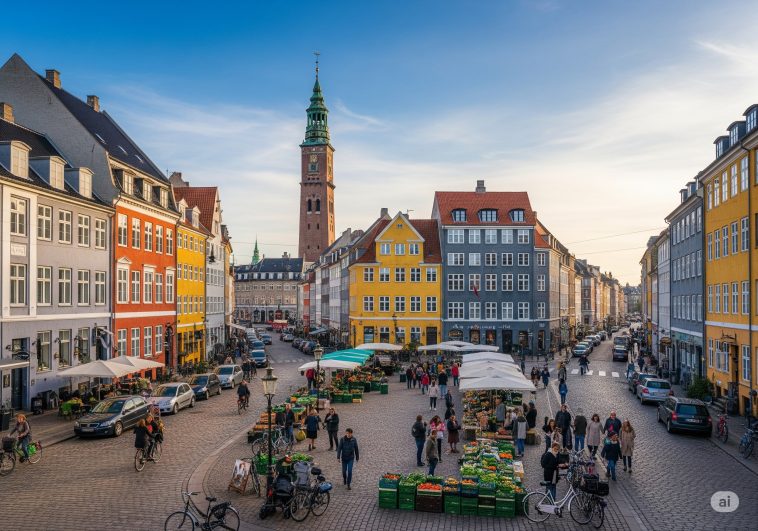Each year, the Economist Intelligence Unit (EIU) releases its highly anticipated Global Liveability Index, evaluating 173 cities around the world based on factors like stability, healthcare, culture, environment, education, and infrastructure.
For the past three years, Vienna had comfortably held the crown. But in a surprising twist, Copenhagen has overtaken the Austrian capital to become 2025’s most livable city in the world.
🏆 Top 10 Most Livable Cities in 2025
According to the EIU’s 2025 Global Liveability Index, the top ten cities are:
- Copenhagen, Denmark
- Vienna, Austria
- Zurich, Switzerland
- Melbourne, Australia
- Geneva, Switzerland
- Sydney, Australia
- Osaka, Japan
- Auckland, New Zealand
- Adelaide, Australia
- Vancouver, Canada
🇩🇰 Why Copenhagen Took the Lead
Copenhagen climbed to the top thanks to perfect scores in key categories like stability, education, and infrastructure. The city has long been admired for its:
- Strong public safety record
- World-class healthcare and education systems
- Advanced public transportation and bicycle infrastructure
- Sustainable urban planning and environmental focus
These elements, combined with a high standard of living and low crime rates, made Copenhagen the ultimate winner this year.
🇦🇹 Vienna Falls to Second Place – Blame the “Taylor Swift Effect”?
Vienna, which had been the number one city for three consecutive years, now shares second place with Zurich. According to the EIU report, a minor drop in its “stability” score affected its ranking.
Interestingly, one of the cited incidents was the cancellation of a Taylor Swift concert in Vienna last year due to a bomb threat, which reportedly created perceptions of reduced security. Though the threat was ultimately a hoax, it was enough to impact Vienna’s score in the stability category.
🌍 A Global Mix, But Europe Still Dominates
The top 10 list reflects a strong European presence, with four cities: Copenhagen, Vienna, Zurich, and Geneva. Australia also performed exceptionally, claiming three spots with Melbourne, Sydney, and Adelaide.
Meanwhile, Osaka (Japan), Auckland (New Zealand), and Vancouver (Canada) represent Asia-Pacific and North America.
One major drop this year came from London, which fell to 54th place, marking a significant fall from its previous standing.
🔍 What is the EIU Global Liveability Index?
The EIU evaluates cities on over 30 factors across five broad categories:
- Stability (crime, threat of conflict or terrorism)
- Healthcare (availability and quality)
- Culture & Environment (climate, freedom, and leisure)
- Education (public and private system quality)
- Infrastructure (transport, housing, utilities)
Cities scoring higher are considered to offer better living conditions, particularly for expatriates and global professionals.
✈️ Conclusion: Copenhagen, the New Global Urban Standard
In a world facing rising uncertainty and urban challenges, Copenhagen stands out as a model for sustainable, safe, and high-quality urban living. With strong institutions, efficient public services, and a human-centric design philosophy, it’s no surprise the Danish capital now tops the list.
As the competition for livability intensifies, all eyes will be on how cities adapt — not just to global events, but to the everyday needs of their residents.

